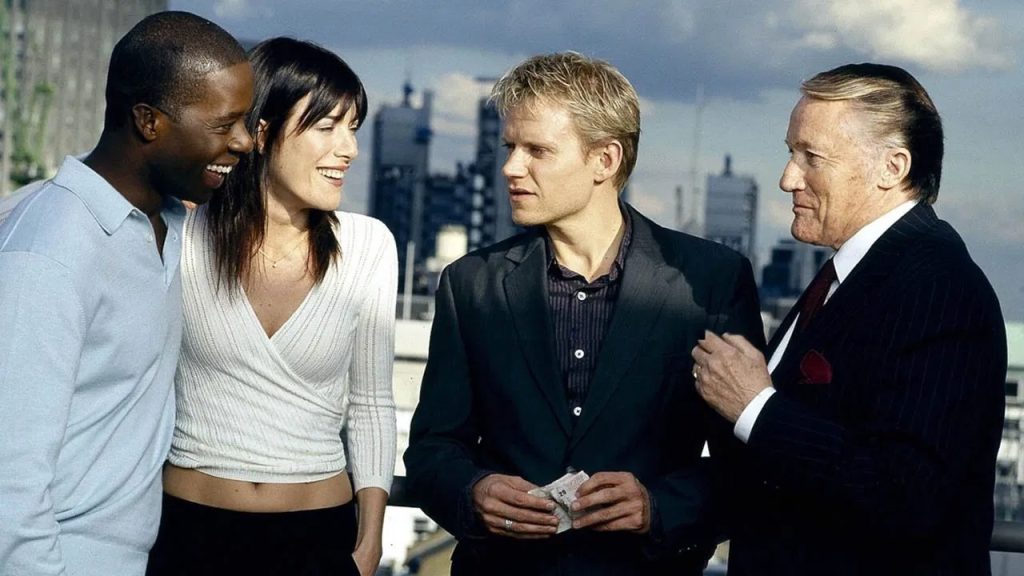What TV Viewers Learn from Casino-Based Plotlines on The Silver Screen

Many UK dramas and crime shows have woven casino scenes into their narratives, but what lessons do viewers take away from those smoky backroom tables and high-stakes gambles? Shows like The Split and Hustle offer more than just entertainment. They explore themes of risk, psychology, power and precision, and sometimes, they even echo real-world casino experiences, though with very different visuals.
Fiction vs Reality
Take Hustle (BBC One, 2004–2012), which follows a team of slick con artists executing elaborate long cons against corrupt marks. The Guardian had raving reviews for it. Viewers learn the value of planning, misdirection and playing to your audience’s expectations, lessons that often apply to real poker or blackjack tables.
Likewise, The Split (BBC One, 2018–2022 and 2024 special) staged a tense high-stakes poker scene in the Christmas episodes, and reviewers praised Nicola Walker’s nuanced performance in a stylish, grown-up legal drama. The storytelling emphasises strategy, observation, and composure under pressure, skills that resonate with players beyond TV screens. Nevertheless, real-world gambling looks very different from the drama of TV.
Onscreen, the drama plays out in hushed poker rooms and smoky backrooms, with high tension, low lighting, and characters with nothing to lose. In real life, though, the casino experience is far less theatrical. Many of the best UK non GamStop casinos feel more like cleanly designed websites than dens of drama. They are practical, even understated, offering features you would never see in a TV script, like PayPal deposits, one-click navigation, and customer support chats instead of cryptic dealers. It might not make for great television, but for everyday players, the real thing offers more choice, more control, and often a better overall experience.
Lessons Between the Lines
In Hustle, the crew never makes a move without studying the odds. Whether it’s bluffing a mark or planning an escape, there’s an emphasis on strategy over spontaneity. That same mindset applies to real-life gaming. Whether sitting at a poker table or opening a live blackjack room on a mobile device, the players who do best usually prepare, observe and stay two steps ahead.
Then there’s the matter of control. In The Split, a well-played poker hand isn’t just about cards, it’s about reading the room and holding your nerve. That control mirrors how today’s players set personal budget limits, manage deposits, and navigate games on their own terms. It’s a quieter kind of power, but it shapes outcomes more effectively than a dramatic twist ever could.
Television also leans on dramatic cues, stares, pauses, flashy reveals, to tell its stories. In real life, those signals are rarely so clear. A hesitant bet, a repeated pattern, or even how someone interacts with the game interface can offer more insight than any scripted stare-down. It’s less theatrical but often more telling.
While the onscreen experience is all red carpets and tuxedos, actual play is usually far more routine. A real session might happen on a morning commute, during a lunch break, or while winding down in the evening. There are no cocktails or high ceilings, just familiarity, quick access and reliable tech. Surprisingly, for many players, that simplicity is more appealing than the cinematic version.
When Practicality Wins
What these TV dramas rarely capture is the range and accessibility of real-world play. A player using a site with PayPal support, tailored settings and seamless design isn’t living a double life, they’re fitting entertainment into their day. It might not be as suspenseful as a high-stakes heistor courtroom bluff, but it is far more manageable and realistic.
The real appeal today isn’t just in the stakes, but in the systems that support them. Games can be paused, deposits controlled, and time managed, all quietly and efficiently. That kind of power doesn’t lend itself to dramatic pacing, which is why it’s rarely shown on screen. For everyday players, it’s exactly what keeps them coming back.
The Final Take
TV stories teach us plenty, about timing, psychology, and staying composed under pressure. Those lessons apply in more ways than one. Whether you’re watching a sharp-eyed solicitor in The Split or a smooth-talking hustler planning a sting, the core ideas translate. That said, the glamour and grit of fiction don’t really reflect how most people play.

